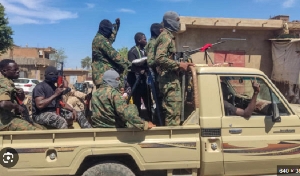Regional News of Thursday, 9 September 2010
Source: GNA
Gomoa Mampong to perform mass funeral to reduce cost
Gomoa Mampong (C/R), Sept 9, GNA - The chiefs and people of Gomoa Mampong in the Gomoa West District of the Central Region have taken measures to reduce the cost of performing funerals in the town.
Under it, mass funerals are to be performed once in every three months with the 93Oman" (Community) bearing the greater part of the expenses.
Mr Joshua Kobena Aidoo, an opinion leader in the community, announced the measure at a fund-raising forum as part of their annual Akwanbo festival.
He said the citizens would be made to make contributions from which the funeral expenses would be borne.
He said a permanent shed would be raised at their meeting place so that there would be no need for canopies to be hired for funerals and other meetings.
Mr Aidoo said the Oman would provide coffin and pay for eight days of preservation of the corpse in a mortuary and also provide music for the funeral.
He said if anyone decided to keep a corpse in a mortuary for more than eight days, he or she would have to pay for the extra days and also if anyone decided not to accept the coffin provided by the Oman, the cost would be converted into cash for the person to top-up to buy the one he or she liked.
Mr Fred Oscar Abban, Assembly Member for the area and the Presiding Member of the Gomoa West Assembly, gave account of his stewardship by saying that he had helped to establish a basic school in the town.
He said he also helped to get the Kokofu-Mampong Methodist Junior High School rehabilitated.
Mr Abban said he also played a leading role in the extension of electricity to the town, as well as reviving the various branches of the Mampong Citizens Associations.
Odaano Atta Mensah II, Gyasehen of the town, called on citizens to unite to build the town and ensure the maintenance of its cultural heritage.
Mr Kweku Yedu, a Senior Citizen, appealed to people who hailed from rural communities not to feel shy to identify themselves with their roots.
He said they must use their positions to improve conditions in their communities.










